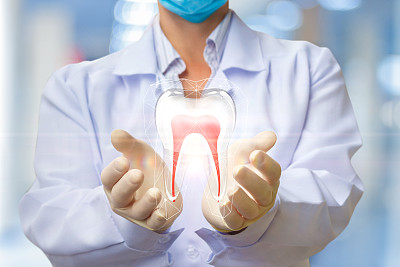Summary: Dental implant treatment offers an effective solution for individuals seeking to restore their smiles after tooth loss. This article explores the myriad benefits of dental implants, which include aesthetic appeal, enhanced functionality, and long-term durability. Additionally, we will delve into the comprehensive process of dental implant treatment, including pre-surgical assessments, the surgical procedure, and post-operative care. By emphasizing the importance of dental implants for both physical health and emotional well-being, we aim to provide a thorough understanding of how this treatment can significantly improve quality of life and promote lasting smile restoration.
1. Aesthetic and Functional Benefits of Dental Implants

One of the primary benefits of dental implants is their ability to restore the natural appearance of a smile. Unlike traditional dentures or bridges, implants are designed to look and feel like real teeth. They are custom-made to match the color and shape of the surrounding teeth, providing a seamless integration into the patients smile.
In addition to aesthetics, dental implants greatly enhance functionality. They allow individuals to eat a wider variety of foods without the fear of slippage or discomfort, which is often associated with removable dentures. Dental implants also provide the necessary support for facial structures, thus preventing the sunken look that can occur due to bone loss following tooth extraction.
Moreover, patients with dental implants often report increased confidence and improved self-esteem. The ability to smile, speak, and eat without hesitation transforms daily interactions, reinforcing the psychological benefits of oral health restoration. A beautiful smile can open doors to new opportunities in both personal and professional realms.
2. Long-Term Durability and Maintenance of Implants
Dental implants are highly durable and can last a lifetime with proper care. Made from biocompatible materials, they fuse with the jawbone through a process called osseointegration, offering a strong foundation for replacement teeth. This feature significantly distinguishes them from other tooth replacement options, which often require replacements or repairs over time.
In terms of maintenance, dental implants require routine oral hygiene just like natural teeth. Regular brushing, flossing, and dental check-ups ensure implants remain in excellent condition. Unlike traditional dentures, which may need to be relined or replaced due to changes in jawbone density, dental implants provide a stable solution that remains effective over time.
Patients should also understand that while dental implants are durable, they are not immune to failure. Factors such as smoking, poor oral hygiene, or underlying health conditions can compromise the success of implants. Thus, maintaining a good oral health regimen is crucial to their longevity.
3. The Comprehensive Process of Dental Implant Treatment
The process of dental implant treatment begins with a thorough examination by a dental professional. This includes x-rays and possibly 3D imaging to assess jawbone density and determine the suitability of the patient for implants. A personalized treatment plan is then developed based on the results.
The next phase involves the surgical placement of the implant. Under local anesthesia or sedation, the implant post is surgically inserted into the jawbone. After the surgery, a healing period is required for osseointegration, which can take several months. During this time, a temporary crown may be placed to maintain aesthetics.
Once the implant has fully integrated with the bone, the final step occurs: the placement of the permanent crown. This gives patients the fully restored smile they desire and allows them to enjoy all the benefits of dental implants. Post-operative care, which includes follow-up appointments and monitoring of the surgical site, is essential for ensuring a successful outcome.
4. Emotional and Psychological Impact of Smile Restoration
Beyond the physical improvements, dental implants bring notable emotional and psychological benefits. Many patients experience a boost in self-confidence upon receiving their new smile, allowing them to engage more freely in social interactions. The fear of being embarrassed about missing teeth diminishes, enabling individuals to feel more comfortable in their skin.
Additionally, the restoration of a smile can have significant implications for mental health. Studies show that individuals who feel good about their appearance often experience lower levels of anxiety and depression. The simple act of smiling can release endorphins, which enhances mood and provides a sense of overall well-being.
Furthermore, families and relationships often benefit from the change that dental implants can offer. A joyful, confident smile enhances interactions with loved ones and strengthens personal bonds. The emotional uplift associated with smile restoration underscores the profound impact dental implants can have on a persons life.
Summary:
In conclusion, dental implants represent a comprehensive solution for individuals looking to restore their smiles. Their numerous benefits, ranging from aesthetic appeal and enhanced function to long-lasting durability, make them a worthwhile investment in oral health. Through a detailed understanding of the treatment process and its emotional impacts, patients can make informed decisions that lead to successful outcomes. Ultimately, dental implants not only restore smiles but also uplift lives.
This article is compiled by Vickong Dental and the content is for reference only.
Vickong Dental
Vickong Dental is a large medical group established in Hong Kong in 2008 by professors from well-known medical universities in Guangdong and Hong Kong, as well as medical doctors from key national '985' universities (including Master's supervisors and senior professors). The chain of branches brings together expert dentists with PhDs and Master's degrees from Hong Kong and Mainland China, committed to providing high-quality dental treatment.
"Vickong Dental Practices the University Motto of 'Healing and Serving Society,' with a Stable Operation for Sixteen Years. It Has Been honored with Hong Kong Enterprise Leaders's Choice,' and is a Global Trusted Implant Center for the Nobel Implant System. Recommended by Hong Kong Metro Broadcast and Guangdong Television, it Serves Customers from Over Thirty Countries and Regions, Gaining the Trust and Favor of Citizens from the Guangdong-Hong Kong-Macau Greater Bay Area and Surrounding Cities.

Thousands of customers' unanimous praise
The most recognized and highly recommended dental service by customers in the Guangdong-Hong Kong-Macau Greater Bay Area
We Ensure You Receive Detailed Care and Attention Here
Hong Kong standards, Shenzhen prices, Your Trusted English-speaking dentists

Vickong Dental Medical-Grade Instrument Disinfection Process
Vickong Dental Medical-Grade Instrument Disinfection Process

Vickong Dental Chain: A Warm and Comfortable Environment for Treatment






Appointment Hours

Q&A
Why choose Vickong Dental?
Vickong Dental practices the university motto 「Medicine to Benefit Society」, with each branch bringing together highly qualified dentists with doctoral and master’s degrees from Hong Kong and the Mainland, and has maintained seventeen years of steady operation。Recipient of 「2024 Hong Kong Enterprise Leaders Brand」, 「2025 Hong Kong Enterprise Leaders Brand」, a Nobel Biocare Global Trusted Implant Center, and a brand recommended by Metro Radio Hong Kong and Guangdong TV。
To date, we have served customers from more than thirty countries and regions,earning exceptionally high word-of-mouth recognition and trusted recommendations from residents across the Guangdong-Hong Kong-Macao Greater Bay Area and surrounding cities
We have eight major branches in Zhuhai、Shenzhen,and a consultation and service assurance center in Hong Kong,so you can book a free consultation at any time for any questions,which is very reassuring.
If I do not accept the quotation after the CT scan, will I be charged??
No! As long as the actual treatment has not started, you will not be charged any fees.
Will there be any additional charges during the treatment process?
No, there won’t be any additional charges. Before treatment begins, we will clearly explain the treatment plan and its corresponding fees. Only after the patient agrees and signs the consent form will we proceed with the dental service.
Can I pay in Hong Kong dollars?
Yes. Vickong Dental accepts payment in Hong Kong dollars. The amount will be converted based on the exchange rate of the day, and the applicable rate will be clearly communicated to you in advance.
Can I reschedule my appointment at any time?
Yes. Please contact us via **WeChat** or **WhatsApp** as early as possible, providing your original appointment time and details, along with your preferred new date and time slot for rescheduling.













